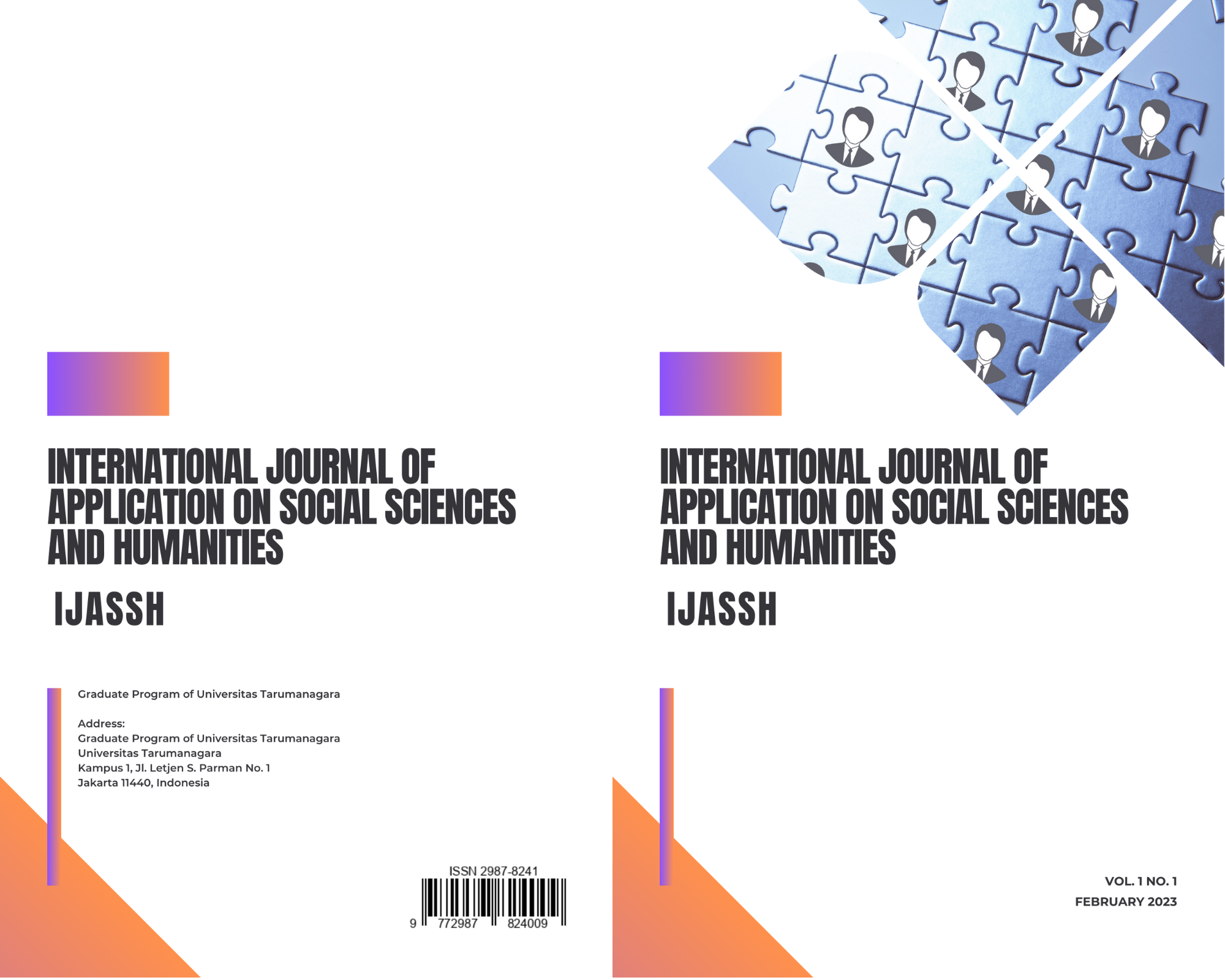THE RELATIONSHIP BETWEEN EMOTION REGULATION DIFFICULTIES AND SOCIAL NETWORKING SITES ADDICTION
Main Article Content
Abstract
ABSTRACT
One of the internet facilities that help run social activities is social networking sites. The use of social networking sites is stable on an annual basis at a duration of 3.5 hours/day and is said to bring positive emotions to the users. However, excessive use that tends to lead to the formation of social networking sites addiction can be associated with difficulty in regulating emotions. Previous study had suggested a relationship between social networking sites addiction and emotion regulation difficulties in the context of Chinese social networks. To examine this hypothesis in another location of Jakarta, this study used a non-experimental quantitative method with a self-report questionnaire, namely the adapted version of Social Networking Addiction Scale (SNAS) and Difficulties in Emotion Regulation Scale (DERS). Participants in this study were determined by the cross-sectional approach, involving 391 students (18-24 years) domiciled in Jakarta or who are enrolled in any university in Jakarta. Data was analyzed using Spearman correlation, and the result shows that there is a significant positive relationship between emotion regulation difficulties and social networking sites addiction {r (389) = 0.330, p < 0.01}.
Article Details
Section

This work is licensed under a Creative Commons Attribution-NonCommercial-ShareAlike 4.0 International License.
References
ABC. (2019, 30 Oktober). “Hidup Saya Berubah": Bagaimana Puasa Media Sosial Membantu Mahasiswa Indonesia di Australia. Tempo. https://www.tempo.co/abc/4907/hidup-saya-berubah-bagaimana-puasa-media-sosial-membantu-mahasiswa-indonesia-di-australia
Andreassen, C. S., Pallesen, S., & Griffiths, M. D. (2017). The relationship between addictive use of social media, narcissism, and self-esteem: Findings from a large national survey. Addictive Behaviors, 64, 287– 293. http://dx.doi.org/10.1016/j.addbeh.2016.03.006
Aydin, S., Koçak, O., Shaw, T. A., Buber, B., Akpinar, E. Z., & Younis, M. Z. (2021). Investigation of the effect of social media addiction on adults with depression. Healthcare, 9(4), 450. doi:10.3390/healthcare9040450
Azizi, S. M., Soroush, A., & Khatony, A. (2019). The relationship between social networking addiction and academic performance in Iranian students of medical sciences: A cross-sectional study. BMC Psychology, 7. https://doi.org/10.1186/s40359-019-0305-0
Brailovskaia, J. Truskauskaite-Kuneviciene, I., Margraf, J., & Kazlauskas, E. (2021). Coronavirus (COVID-19) outbreak: Addictive social media use, depression, anxiety and stress in quarantine – an exploratory study in Germany and Lithuania. Journal of Affective Disorders Reports, 5, 100182. https://doi.org/10.1016/j.jadr.2021.100182
Djauharoh, S. & Suyasa, P. T. Y. S. (2021). Edukasi meningkatkan emotional intelligence untuk memaksimalkan kinerja di tengah kondisi pandemi COVID-19. Prosiding Serina, 1(1), 597-604. https://journal.untar.ac.id/index.php/PSERINA/article/view/17668/9736
Dong, H. X., Yang, F. R., Lu, X. Z., & Hao, W. (2020). Internet addiction and related psychological factors among children and adolescents in China during the coronavirus disease 2019 (COVID-19) epidemic. Frontiers in Psychiatry, 11, Article 00751. https://doi.org/10.3389/fpsyt.2020.00751
Echeburua, E., & de Corral, P. (2010). Addiction to new technologies and to online social networking in young people: A new challenge. Adicciones, 22(2), 91-96. https://doi.org/10.20882/adicciones.196
Gratz, K. L., & Roemer, L. (2004). Multidimensional assessment of emotion regulation and dysregulation: Development, factor structure, and initial validation of the difficulties in emotion regulation scale. Journal of Psychopathology and Behavioral Assessment, 26(1), 41–54. https://doi.org/10.1023/B:JOBA.0000007455.08539.94
Griffiths, M. D., Kuss, D. J., & Demetrovics, Z. (2014). Social networking addiction: An overview of preliminary findings. In K. P. Rosenberg & L. Curtiss Feder (Eds.), Behavioral addictions: Criteria, evidence, and treatment (pp. 119–141). Elsevier Academic Press. https://doi.org/10.1016/B978-0-12-407724-9.00006-9
Gross, J. J., & Muñoz, R. F. (1995). Emotion regulation and mental health. Clinical Psychology: Science and Practice, 2(2), 151-164. http://dx.doi.org/10.1111/j.1468-2850.1995.tb00036.x
Kemp, S. (2019). Digital 2019: Indonesia. DataReportal. https://datareportal.com/reports/digital-2019-indonesia
Kemp, S. (2020). Digital 2020: Indonesia. DataReportal. https://datareportal.com/reports/digital-2020-indonesia
Kemp, S. (2021b). Digital 2021: Indonesia. DataReportal. https://datareportal.com/reports/digital-2021-indonesia
Kompas.com. (2021, 23 Februari). Berapa lama orang Indonesia akses internet dan medsos setiap hari?. KOMPAS. https://tekno.kompas.com/read/2021/02/23/11320087/berapa-lama-orang-indonesia-akses-internet-dan-medsos-setiap-hari-?page=all
Lian, S. L., Sun, X. J., Zhou, Z. K., Fan, C. Y., Niu, G. F., & Liu, Q. Q. (2018). Social networking site addiction and undergraduate students’ irrational procrastination: The mediating role of social networking site fatigue and the moderating role of effortful control. PLoS ONE, 13(12). https://doi.org/10.1371/journal.pone.0208162
Liu, C., & Ma, J. L. (2019). Adult attachment style, emotion regulation, and social networking sites addiction. Frontiers in Psychology, 10, Article 2352. https://doi.org/10.3389/fpsyg.2019.02352
Oktaviani, F. & Suyasa, P. T. Y. S. (2021). Uji validitas isi (content validity) alat ukur kecerdasan emosional Tarumanagara. Prosiding Serina, 1(1), 597-604. https://journal.untar.ac.id/index.php/PSERINA/article/viewFile/17463/9429
Shahnawaz, M. G., & Rehman, U. (2020). Social networking addiction scale. Cogent Psychology, 7(1), Article 1832032. https://doi.org/10.1080/23311908.2020.1832032
Solbakken, O. A., Ebrahimi, O. V., Hoffart, A., Monsen J. T., & Johnson, S. U. (2021). Emotion regulation difficulties and interpersonal problems during the COVID-19 pandemic: predicting anxiety and depression. Psychol Med, 1-5. doi:10.1017/S0033291721001987
Tamir, M. (2016). Why do people regulate their emotions? A taxonomy of motives in emotion regulation. Personality and Social Psychology Review, 20(3), 199–222. https://doi.org/10.1177/1088868315586325
Zhao, N. & Zhou, G. Y. (2021). COVID-19 stress and addictive social media use (SMU): Mediating role of active use and social media flow. Frontiers in Psychology, 12, Article 635546. https://doi.org/10.3389/fpsyt.2021.635546
Zurafa, Z. & Dewi, F. I. R. (2021). Social-media addiction among late adolescents: Self esteem and narcissism as predictor. Advances in Social Science, Education and Humanities Research, 570, 1444-1449. https://doi.org/10.2991/assehr.k.210805.227

